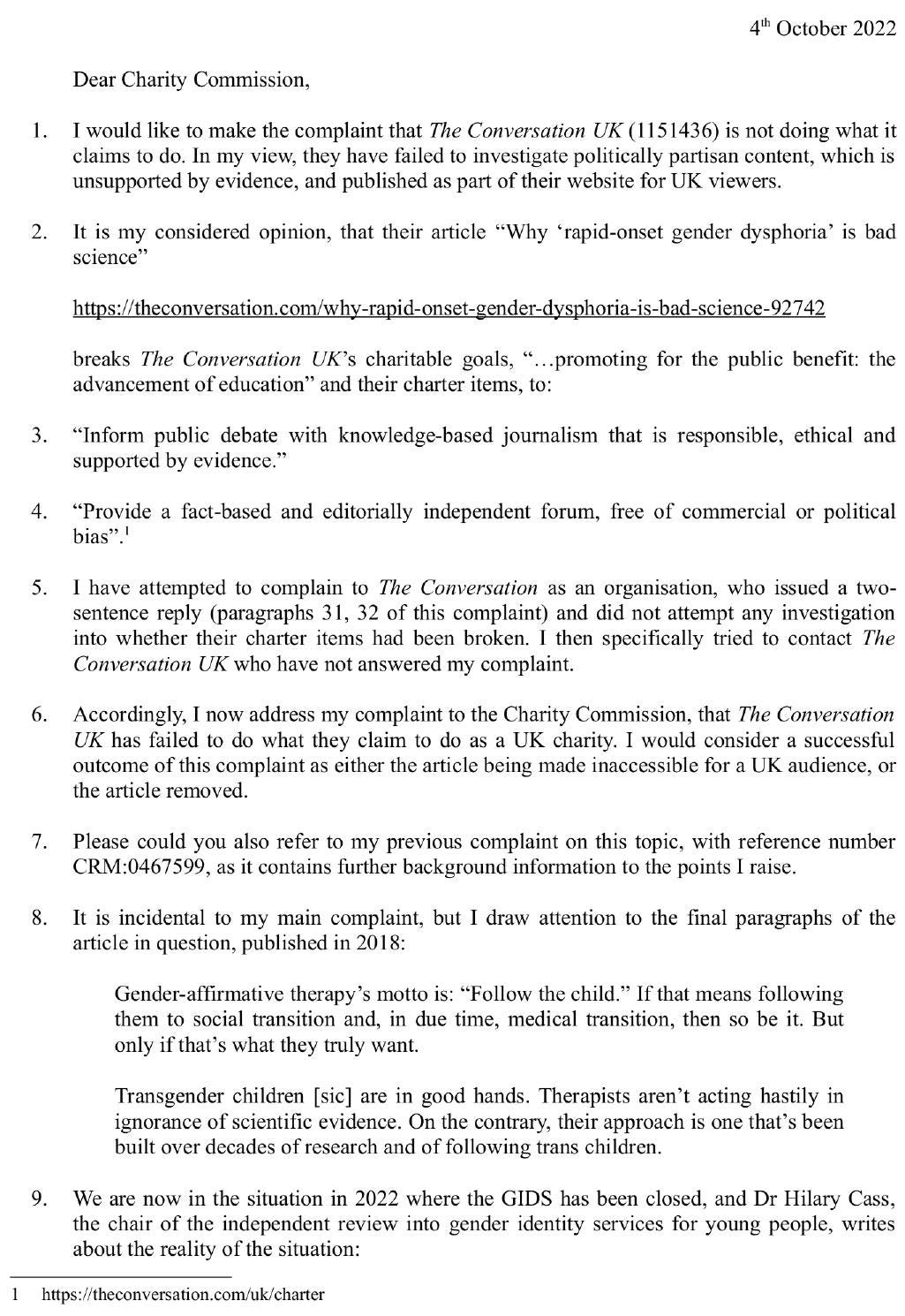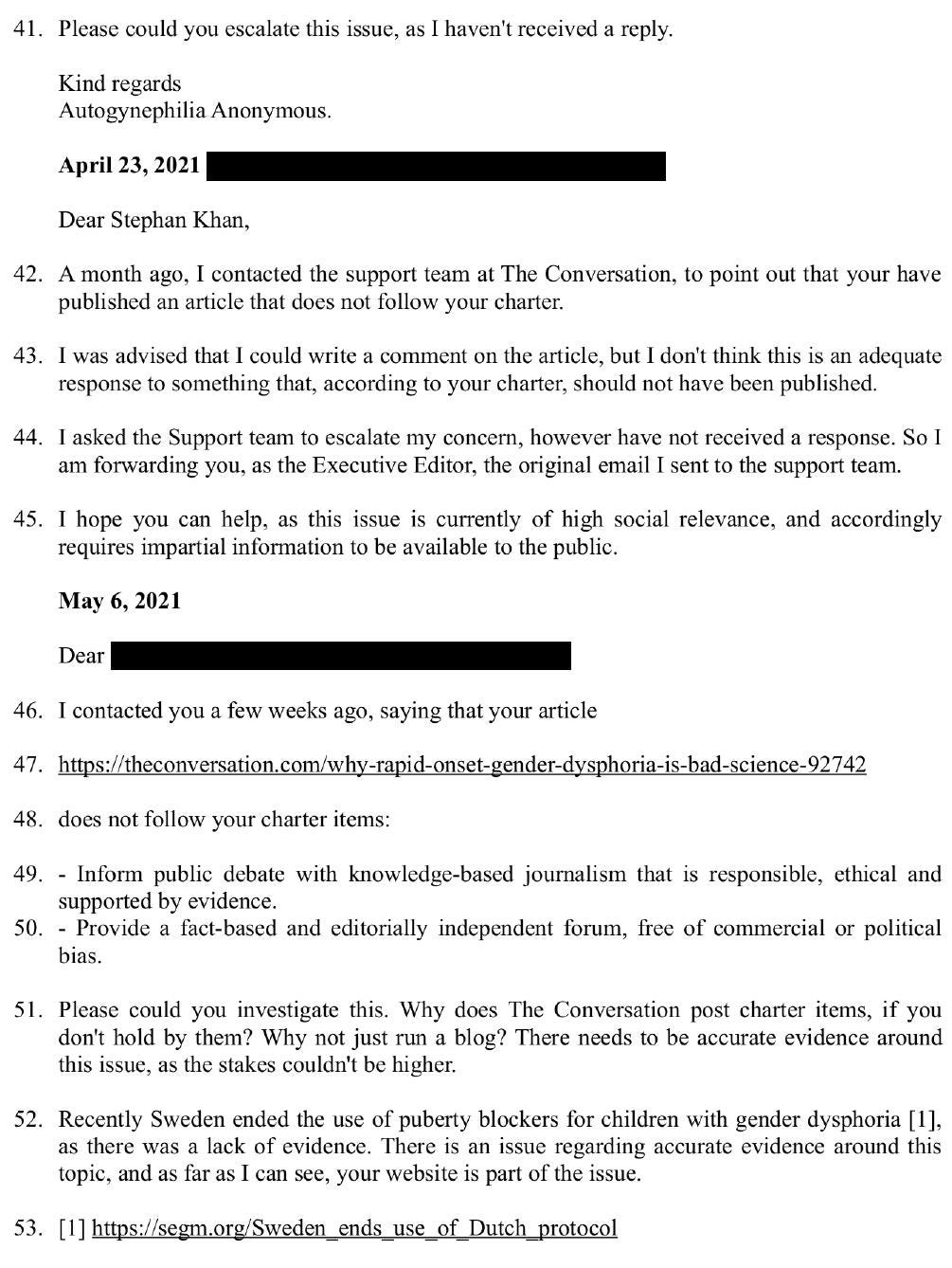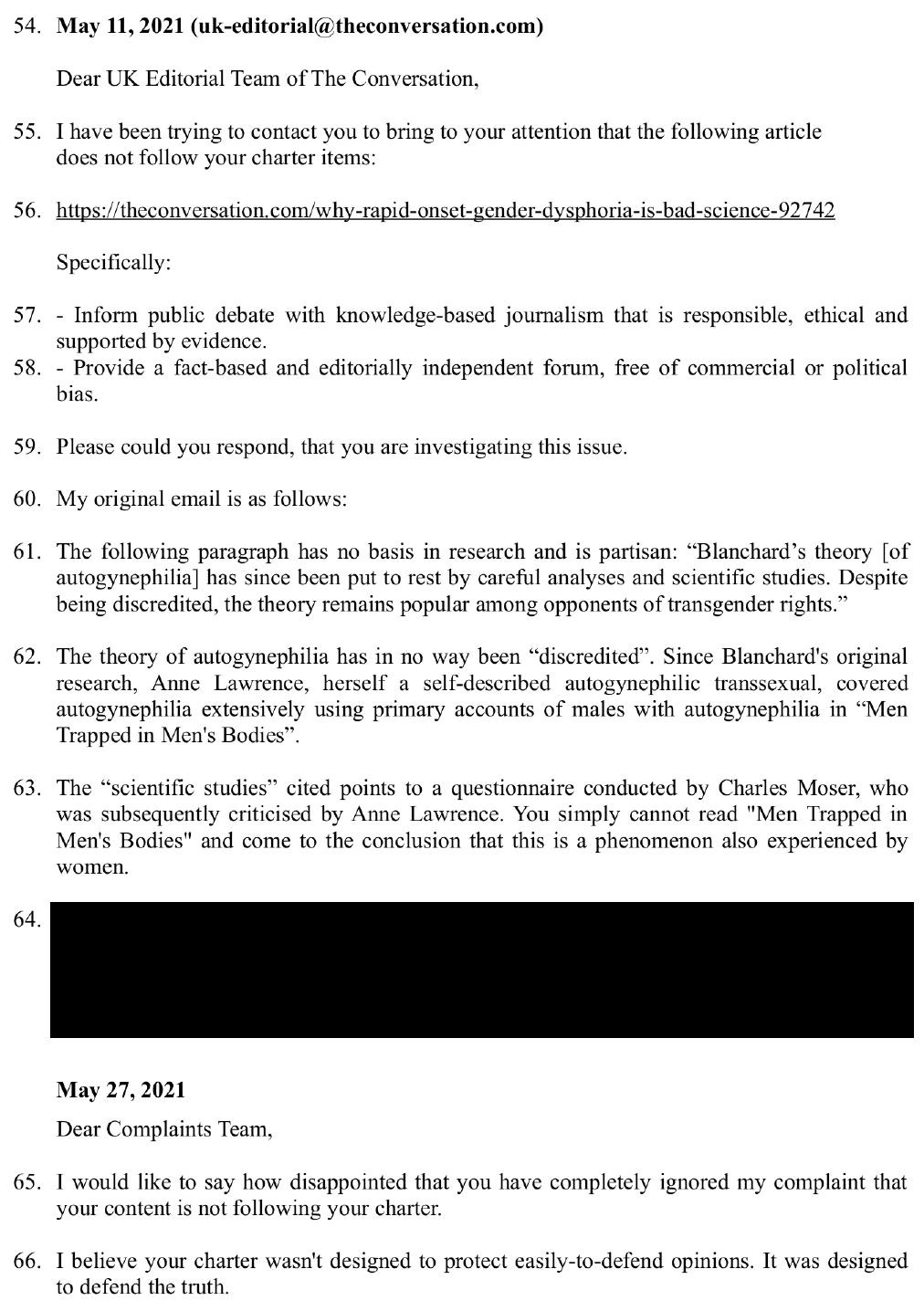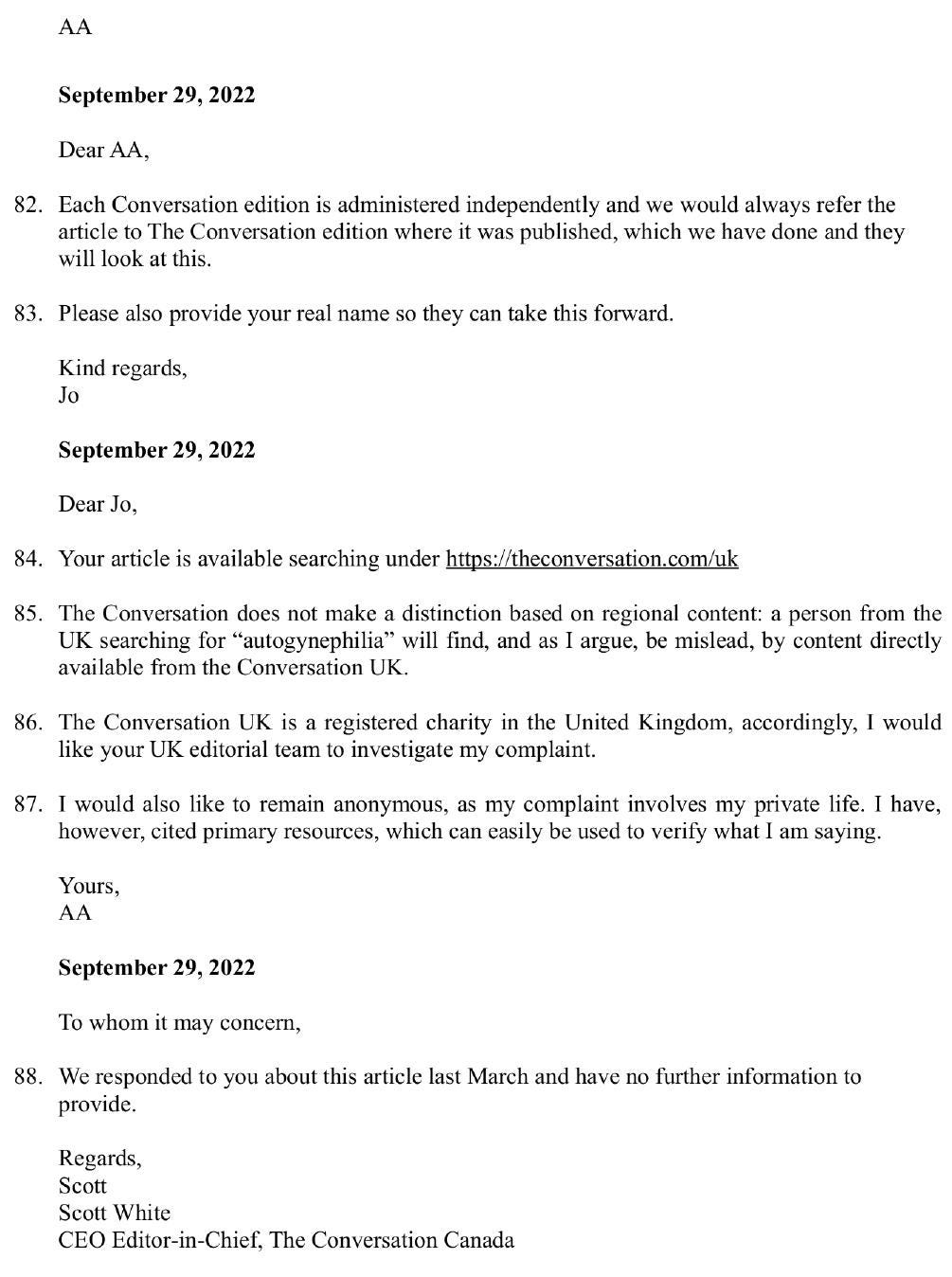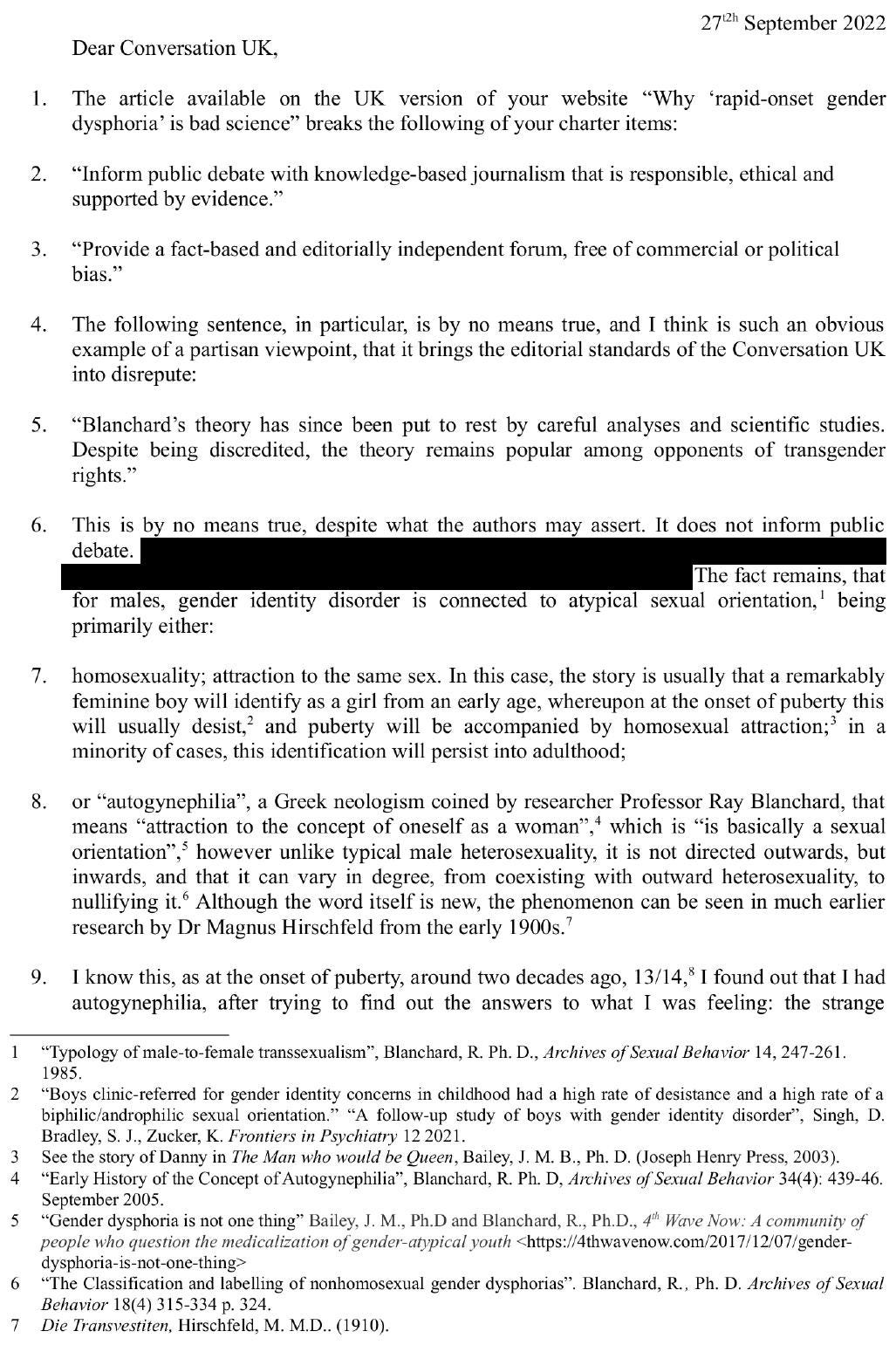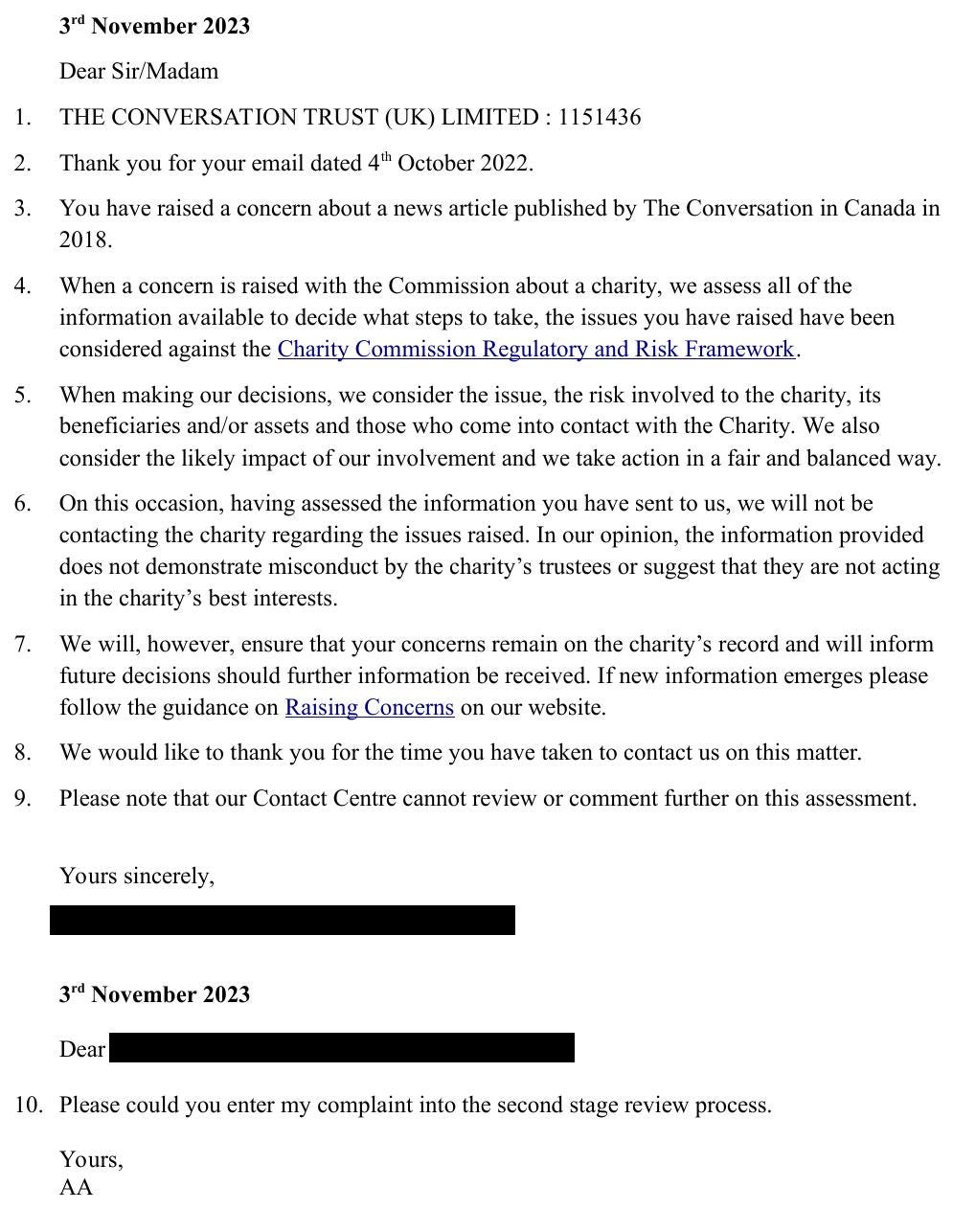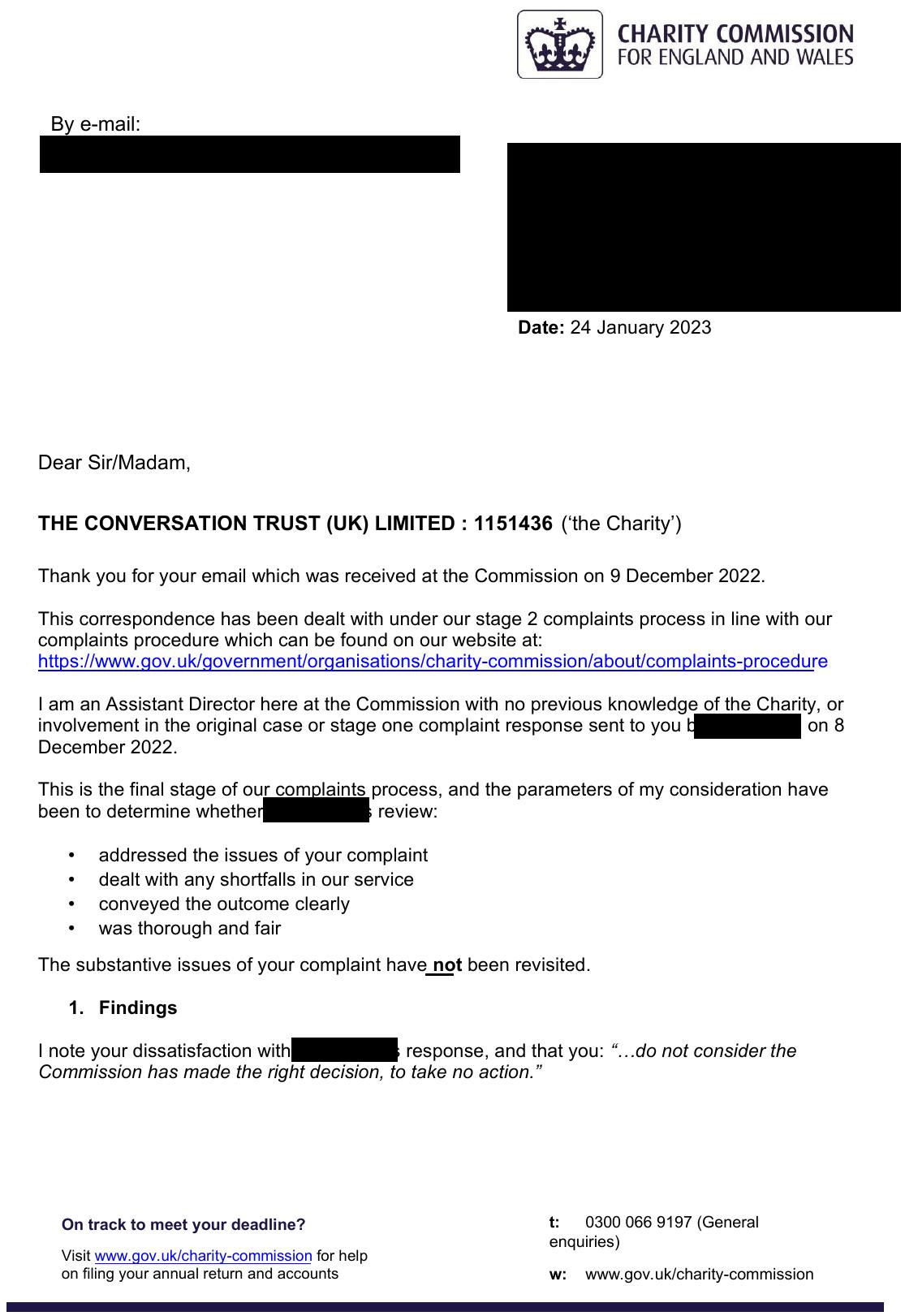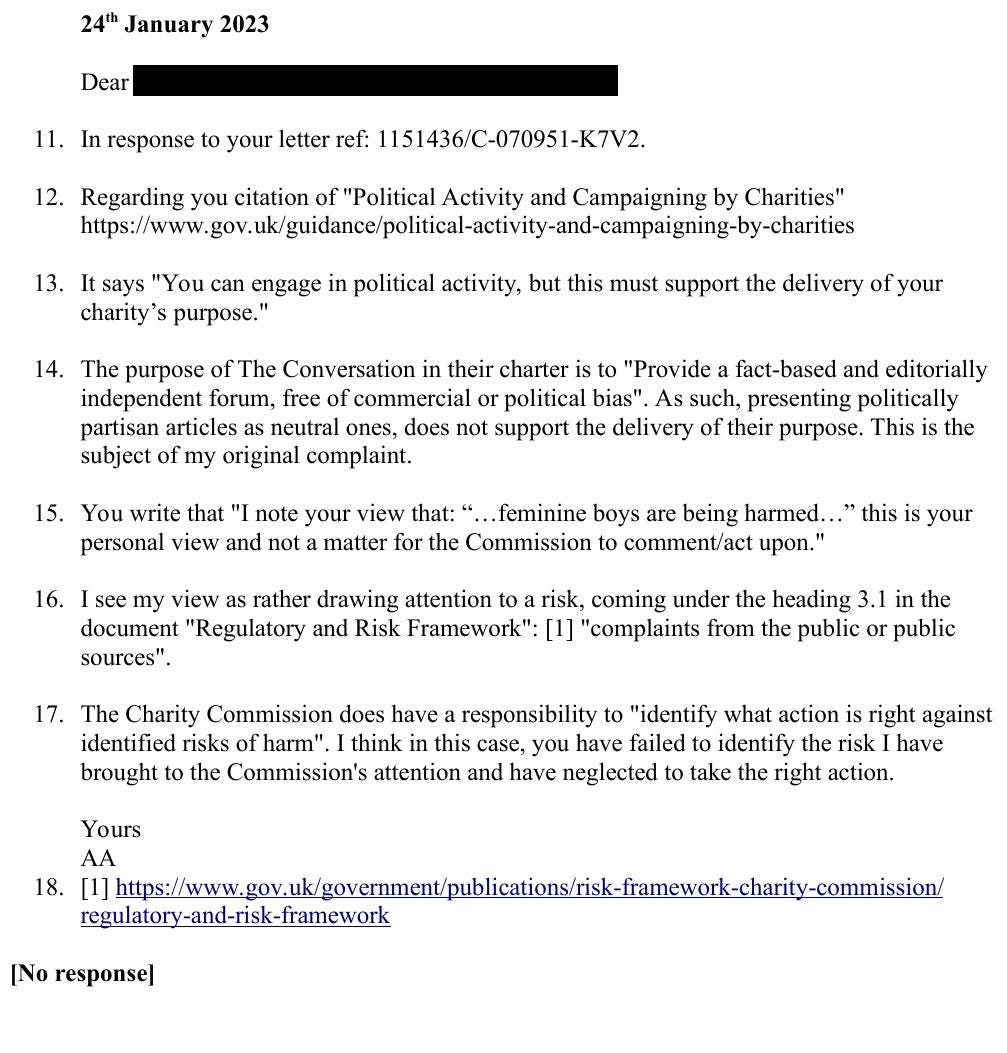Charity Commission complaint regarding The Conversation Trust's "Why rapid-onset gender dysphoria is bad science"
CRM:0352077
[A] number of vocal transgender activists who have histories typical of autogynephilic gender dysphorics do not hesitate to pressure parents, legislators, and clinicians for acquiescence, laws, and therapies that do not distinguish among types of gender dysphoric children. Moreover, they not infrequently claim inside knowledge based on their own experiences. Yet their experiences are irrelevant to the two types of gender dysphoria that they don’t have. And even with respect to autogynephilia, these transgender activists are nearly all in denial. This means that their public recollections of their experiences are either distorted or outright lies.
To us, the most tragic group, along with their families, includes those who have acquired rapid-onset gender dysphoria. That condition appears to be the tragic interaction of the current transgender zeitgeist (“It’s everywhere, and it’s great!”) and social media with the vulnerability of troubled adolescents, especially adolescent girls. They are at risk for unnecessary, disfiguring, and unhealthy medical interventions.
Gender dysphoria is not one thing by J. Michael Bailey, Ph.D and Ray Blanchard, Ph.D.
Knowing there are very distinct kinds of gender dysphoria also raises questions–and concerns–about transgender persons of one type using their own experiences to make recommendations for children/adolescents of other types. Nothing in Caitlyn Jenner’s experience allows her to understand what it was like to be Jazz Jennings–and vice versa.
Gender dysphoria is not one thing by J. Michael Bailey, Ph.D and Ray Blanchard, Ph.D.





